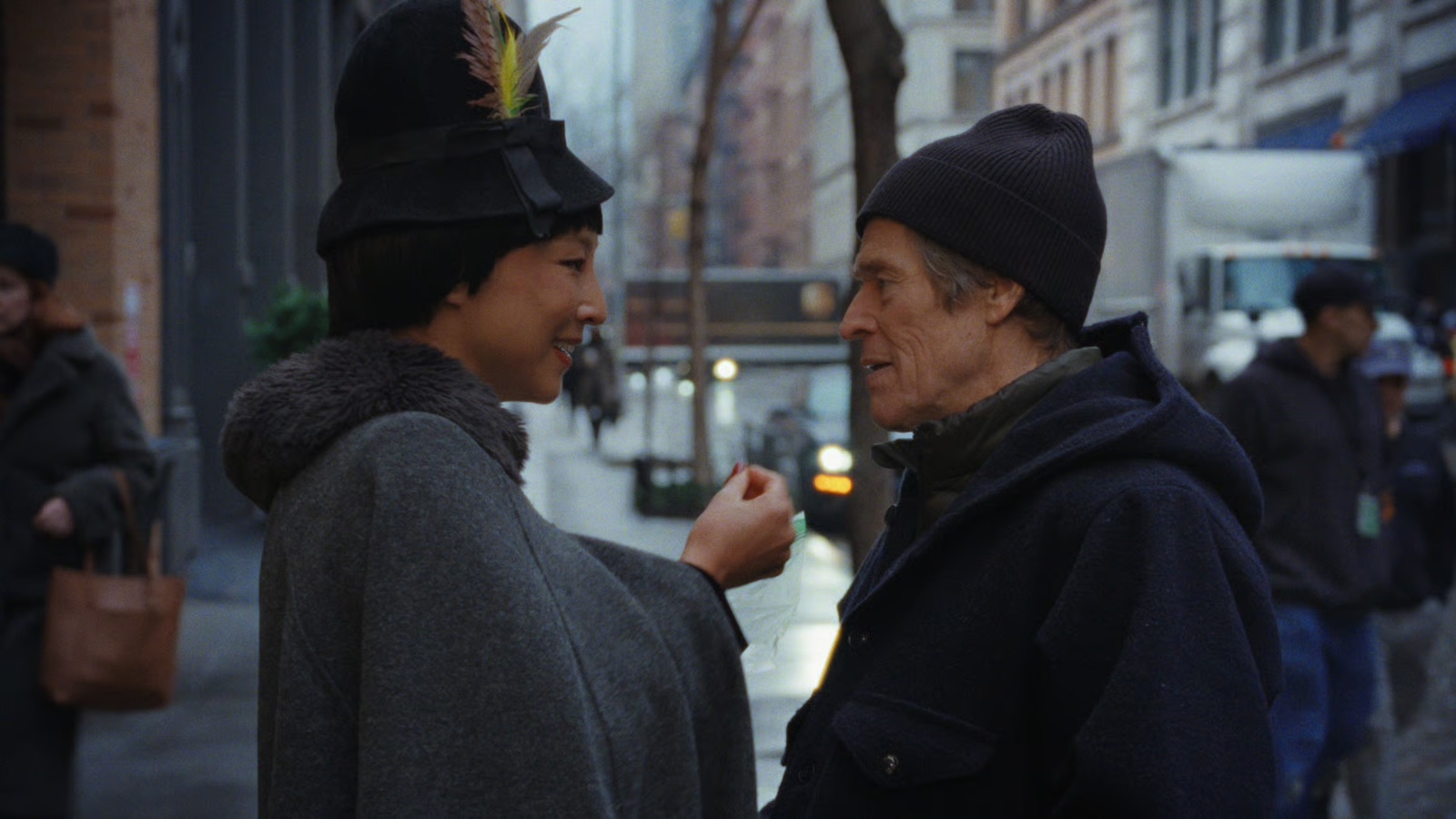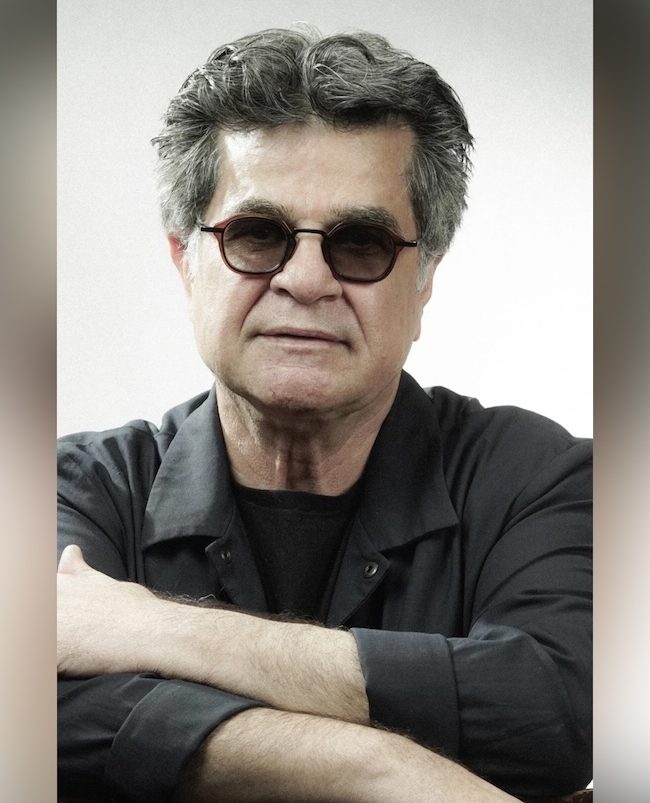
(The 63rd New York Film Festival (NYFF) runs September 26-October 13 via Film at Lincoln Center. Check out M.J. O’Toole’s Late Fame movie review, fresh from the fest! Seen it? Join the conversation with HtN on our Letterboxd Page.)
With so many forgotten works of art being rediscovered and re-appreciated in the modern era, how do those artists deal with their newfound recognition? Film critic-turned-director Kent Jones (Diane) tackles this question in his second narrative feature, Late Fame. He directs from a script penned by Samy Burch (May December), based on Arthur Schnitzler’s posthumously published novel written in 1895, which shifts its setting from the author’s 19th-century Vienna to modern-day New York City. Told through the eyes of its gentle, yet weary former poet (Willem Dafoe), it pays tribute to a bygone bohemian era, while introducing a new generation (and more privileged one) that tries and fails to pay tribute to the older one. Both a satire of artistic pretentiousness and a grounded character study, it is also an observation of how the allure of the past seeps into a self-conscious present. Suppose you have an appreciation for the hidden gems of written works and their originators. In that case, this film will certainly teach you how not to approach them and suck up to them for the sake of validation. With its naturalistic performances, intelligent screenplay, and sharply empathetic direction, Kent Jones’ Late Fame is a tender, witty reflection on the ache of long-departed dreams. It questions whether who you were in the past can still exist in the present.
When we first meet Ed Saxberger (Dafoe), he’s already living a comfortably routine existence. Having been working the same post-office job for thirty-plus years (just like Bukowski did), he spends his days hanging out at the same neighborhood bar with his working-class buddies and enjoying his own company whenever he can, all while dodging phone calls from his estranged sister regarding their dying brother. Though it isn’t long before Saxberger is approached unexpectedly on his doorstep by an overly eager young man, Meyers (Edmund Donovan), who recently discovered his old work and praises it as a “masterpiece.” What work, you might ask? In the late 1970s, Saxberger published a book of poetry called “Way Past Go” that temporarily put him on the map in the era of rebellious artists. But as the life of a poet eventually couldn’t pay the bills, he eventually settled into one of anonymity. Meyers, an NYU student of obvious privilege (like someone straight out of a Whit Stillman film), invites the old man on the spot to meet his group of young aspiring artists, who regularly gather to speak their minds about art and life. As flattered as he is at this invitation, he also takes it somewhat cautiously. As he rejoins this world in a new era, he is in for an introspective journey of identity and creative realization.
One thing that Jones is fascinated by here is the inner layers of people. We see everything through Saxberger’s perspective, and through close-ups of Dafoe’s expressive face (captured through DP Wyatt Garfield’s lens), we get a good sense of the varying emotions he goes through in his moment of newfound recognition. As he shows up to meet Meyers and his “Enthusiasm Society” in their usual East Village bar, he is both bemused and pleasantly surprised by all these talking heads discussing their own perceptions of art and the quality of their works. He almost can’t believe there’s a young generation out there who prefers art to social media and technology, especially those who view him as a legend. One of the young men even asks him if he has ever met Ginsberg. He soon encounters who he sees as a kindred spirit in the form of Gloria (an outstanding Greta Lee), an exuberant stage actress who hangs around and flirts with the group. “Of course, this is exactly how you’d look,” she unabashedly says when she meets the so-called legendary writer that everyone’s been talking about. Her presence and her fascination with him reawaken a certain passion that he’d likely been missing over decades of his life.
As Saxberger settles into his new group of friends, their idolization gets to his head in a way that drives a wedge between him and his oldest group of working-class friends, who didn’t even know he was a published writer at one point. Meyers tries to persuade Saxberger to write a new poem to read at the group’s publicized reading event and even introduces him to a literary agent (an expertly smug Jake Lacy). Though it seems the old man is only obliging as a means of fitting in rather than reinvigorating his writing career. Even his attempt to reawaken his creativity is not as simple as many would presume, given that words don’t automatically flow after decades of inactivity. It’s still hard for Saxberger to see himself as a writer because he hasn’t been that man in so long. His trying so hard to be the person that people see him as is as if he’s running from something, a sort of parallel to Gloria when he comes across her in a different state – her starlet-esque personality likely being a front for her own problems. It is through dealing with shifting boundaries and clashing egos that he faces his illusions and realizes that there can also be virtue in appreciating your present.
With Late Fame, Kent Jones excels in blending the past and present of the New York City art scene – blending archival footage, sound effects, and even Carisa Kelly’s vintage costume design to reawaken the ghosts of the city’s unconforming artists. Dafoe, who himself has gained a much wider appreciation in the last number of years, brilliantly channels his quiet energy into a multi-layered performance as someone in conflict with himself and his past dreams. A vivacious Greta Lee shines in a role that highlights her many dimensions as a performer. But the clear breakout of this film is Edmund Donovan, who excels as someone whose faux-admiration and opinionated nature only emphasize his narcissism. I’ll definitely be on the lookout for what he does next. This gently flowing, atmospheric depiction of an ordinary existence succeeds in humanizing all its characters, even as it’s shown through one man’s perspective. Not everything is resolved by the end, but it doesn’t deprive us of the hope that lies ahead.
– M.J. O’Toole (@mj_otoole93)
2025 NYFF; Kent Jones; Late Fate











